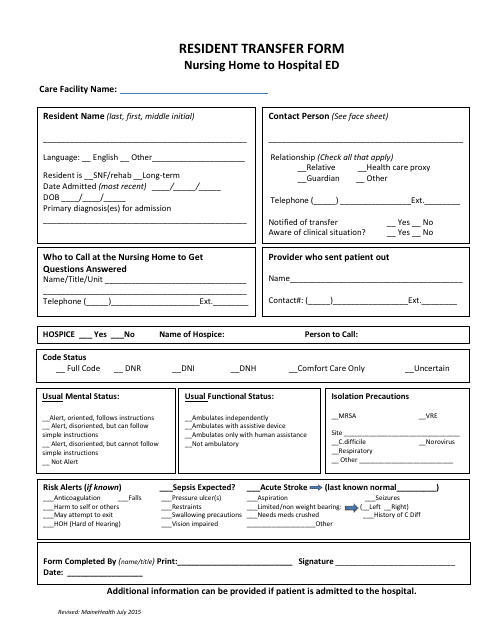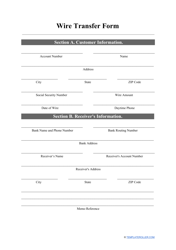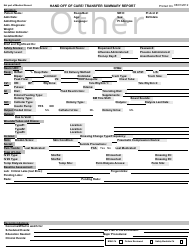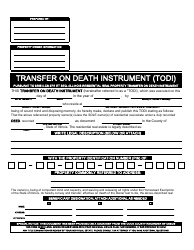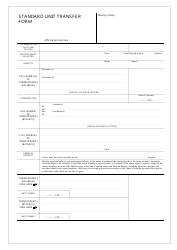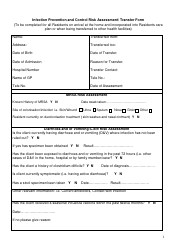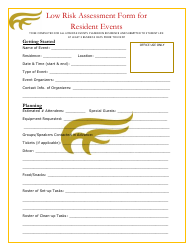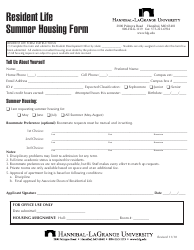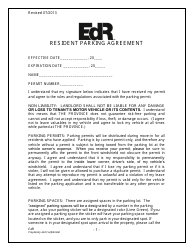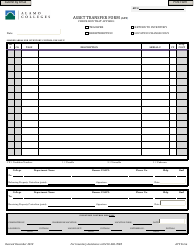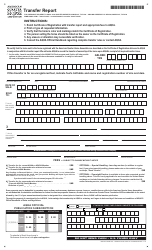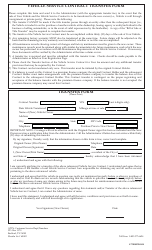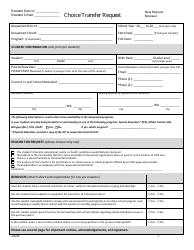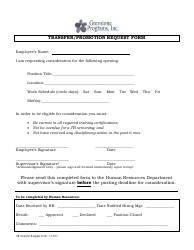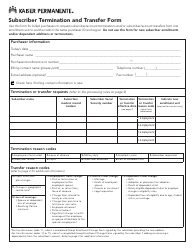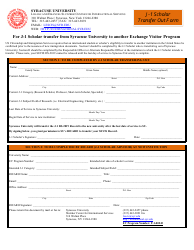Resident Transfer Form - Nursing Home to Hospital Ed
The Resident Transfer Form - Nursing Home to Hospital Ed is used to transfer a resident from a nursing home to a hospital for emergency medical care.
FAQ
Q: What is a resident transfer form?
A: A resident transfer form is a document used when a resident needs to be transferred from a nursing home to a hospital.
Q: Why would a resident need to be transferred from a nursing home to a hospital?
A: There are several reasons why a resident may need to be transferred to a hospital, including medical emergencies, the need for specialized medical care, or the unavailability of certain medical services at the nursing home.
Q: What information is typically included in a resident transfer form?
A: A resident transfer form usually includes the resident's name, date of birth, medical conditions, reason for transfer, contact information for the nursing home and hospital, and any specific instructions or requests.
Q: Who is responsible for initiating a resident transfer?
A: The decision to transfer a resident from a nursing home to a hospital is typically made by the resident's healthcare provider or the nursing home staff in consultation with the resident and their family.
Q: Are there any costs associated with a resident transfer?
A: The costs associated with a resident transfer vary depending on the healthcare system and the resident's insurance coverage. It is advisable to consult with the nursing home and the hospital to understand any potential costs or insurance coverage.
Q: Is a resident transfer form legally binding?
A: A resident transfer form is a legal document that outlines the resident's consent for the transfer and the responsibilities of the nursing home and hospital. However, it is always recommended to consult with legal professionals if there are any concerns or disputes.
Q: Can a resident refuse to be transferred?
A: In most cases, a resident has the right to refuse a transfer from a nursing home to a hospital. However, there may be situations where the transfer is deemed necessary for the resident's health and safety, and the decision may be made by healthcare professionals.
Q: What should a resident and their family do if they have questions or concerns about a transfer?
A: If a resident or their family has questions or concerns about a transfer, they should discuss them with the nursing home staff, healthcare provider, or hospital staff. It is important to communicate and understand the reasons for the transfer and any necessary arrangements.
Q: Is a resident transfer a permanent move?
A: A resident transfer from a nursing home to a hospital is typically temporary and based on the specific medical needs of the resident. Once the necessary medical care is provided, the resident may be transferred back to the nursing home or to a different care facility, depending on their condition and care requirements.
Q: Are there any alternatives to a resident transfer?
A: In some cases, there may be alternatives to a resident transfer, such as arranging for specialized medical services to be provided at the nursing home or exploring home healthcare options. The availability of alternatives depends on the specific situation and resources available.
